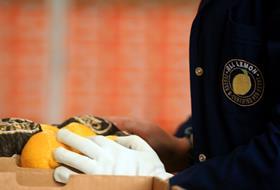
The US Department of Agriculture has confirmed that a new rule allowing lemon imports from Argentina will take effect in May. The announcement follows last week’s trade talks between Donald Trump and Argentine premier Mauricio Macri.
However, imports will only be permitted to north eastern US states – a measure designed to appease Californian growers who claim a resumption of imports puts their industry under threat.
The USDA announced last December that it would lift the 16-year ban, but issued a 60-day stay on the decision following Trump’s inauguration in January, which it subsequently extended by another 60 days.
The statement said it would not be extending the stay again confirmed that the new import rule would take effect when the stay expires on 26 May.
Californian congresswoman Julia Brownley immediately issued a statement slamming Trump's decision, claiming it would 'wreak havoc on American growers'.
“Last week, President Trump spoke about his long-time friendship with Argentine President Mauricio Macri. Yesterday, President Trump threw the US citrus industry -- American growers and American workers – under the bus in order to deliver a favour to a personal friend,' Brownley said.
'It is clear that Argentina does not have an inspection regime in place to prevent the spread of devastating, invasive pests and diseases. This decision will wreak havoc on American growers, and if pests and disease spread, it could result in the destruction of our domestic crops.”
Argentina is the world’s leading producer of fresh lemons with a crop of almost 1.5m tonnes per year, about 80 per cent of which comes from Tucumán. In 2015 the country exported 185,000 tonnes of lemons with a value of US$165m. The main destinations were the Netherlands, Russia and Spain.
The US suspended Argentina lemon exports in 2001 after Californian producers filed a lawsuit against the USDA claiming they were a threat to local production. Since then, Argentina has worked intensively to regain access to the market by showing that its lemons pose no phytosanitary risks.



